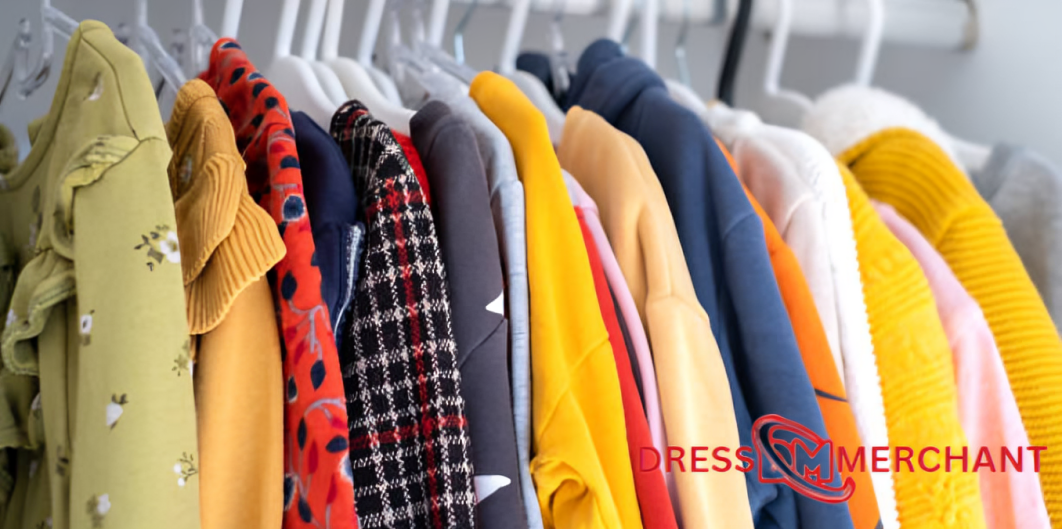Bangladesh Manufacturing Clothing is at the heart of Dress Merchant’s expertise, providing top-tier sourcing and production services. As a leading apparel/garments buying agent, we connect global brands with trusted manufacturers and exporters, ensuring quality, efficiency, and competitive pricing. Partner with Dress Merchant for reliable solutions in fashion sourcing, production management, and international apparel exports.
Thank you for reading this post, don't forget to subscribe!1. Overview of Bangladesh as a Leading Clothing Manufacturer
Bangladesh has emerged as a global leader in clothing manufacturing, offering world-class apparel production at competitive prices. Over the last few decades, the country has transformed from a small-scale garment-producing nation into one of the largest exporters of ready-made garments in the world. The Bangladeshi clothing industry plays a vital role in the nation’s economy, contributing significantly to GDP while providing employment to millions of skilled workers. The country’s cost-effective labor force allows brands to achieve substantial savings on production costs without compromising on quality.
Bangladesh boasts an extensive network of modern clothing manufacturing facilities, which are equipped with the latest textile machinery, computerized cutting systems, and automated sewing lines. These facilities enable large-scale production, including bulk orders for fast fashion brands, while also catering to smaller, specialized apparel projects. Global buyers are drawn to Bangladesh for its combination of high-quality manufacturing, timely delivery, and scalability, ensuring that brands can maintain consistent stock levels.
Moreover, Bangladesh’s strategic location near major shipping routes makes it easier to export garments efficiently to North America, Europe, and Asia. The country’s export processing zones (EPZs) and government support for the textile and garment sector streamline the production and shipping process. Additionally, the Bangladeshi apparel industry has adopted rigorous quality control standards to meet international requirements, making it a trusted clothing manufacturing hub for global fashion brands.
With continuous investment in technology, sustainable practices, and workforce development, Bangladesh is well-positioned to maintain its competitive advantage in the global apparel market. Its commitment to quality, affordability, and efficiency ensures that international buyers can rely on the country for reliable, large-scale garment production. Bangladesh is not just a destination for cost-effective clothing manufacturing but also a partner for brands looking to achieve innovation, consistency, and excellence in apparel production.
2. History and Evolution of Clothing Manufacturing in Bangladesh
The Bangladeshi clothing industry has a rich and transformative history, evolving from modest beginnings into a powerhouse of global apparel production. In the 1970s, the country’s garment sector consisted mainly of small-scale workshops and manual production units, primarily producing basic textiles and simple garments for domestic use. The 1980s marked a turning point as Bangladesh began exporting ready-made garments, taking advantage of low-cost labor and emerging industrial infrastructure.
By the 1990s, Bangladesh had established itself as a reliable supplier for international buyers, particularly in Europe and North America, thanks to improvements in factory standards and efficiency. Factories began investing in modern machinery, automated processes, and skilled workforce training, which enabled them to handle more complex designs and large-scale production. Over the years, Bangladesh has embraced an export-oriented manufacturing model, focusing on high-quality garments for international brands while adhering to stringent social and environmental compliance standards.
The evolution of Bangladesh’s garment industry also reflects its ability to adapt to global market trends. From producing basic T-shirts and shirts to high-end denim, knitwear, formal wear, and children’s clothing, the country has diversified its production capabilities. International fashion brands recognize Bangladesh as a reliable partner, capable of delivering garments that meet precise design specifications, adhere to quality standards, and comply with ethical production requirements.
Today, Bangladesh is the second-largest exporter of apparel globally, after China, demonstrating remarkable growth and resilience. The industry continues to invest in research and development, modern technologies, and sustainable practices, ensuring that the country remains competitive in an increasingly demanding global apparel market. The historical journey of Bangladesh’s clothing manufacturing sector highlights the nation’s strategic vision, commitment to quality, and adaptability, making it a premier choice for international fashion brands seeking both efficiency and innovation.
3. Key Factors Driving Bangladesh’s Apparel Manufacturing Success
Bangladesh’s emergence as a leading clothing manufacturing hub can be attributed to several critical factors that make it highly attractive to international brands. One of the most significant is the availability of cost-effective labor, which allows manufacturers to maintain competitive production costs without compromising on garment quality. The workforce in Bangladesh is skilled and experienced, capable of handling complex stitching, high-volume production, and intricate garment designs.
Another key factor is the country’s industrial infrastructure, which includes modern factories equipped with advanced sewing machines, automated cutting tools, and computerized design software. These facilities enable high-efficiency production, reducing lead times and ensuring timely delivery of bulk orders. Government support further enhances Bangladesh’s appeal through export incentives, tax benefits, and dedicated export processing zones (EPZs). These policies streamline operations for clothing manufacturers and make the country a more attractive investment destination.
Bangladesh’s strategic geographic location also plays a vital role in its apparel manufacturing success. Situated close to major shipping routes, it allows for efficient export of garments to North America, Europe, and Asia. Additionally, manufacturers in Bangladesh adhere to international quality and safety standards, with many factories certified under ISO, BSCI, WRAP, and other global compliance programs.
The country’s ability to adapt to fashion trends and technological advancements is another driving factor. By investing in automation, modern design technologies, and sustainable practices, Bangladesh continues to enhance its manufacturing capabilities while meeting evolving global demands. The combination of affordability, skilled labor, strategic infrastructure, and international compliance makes Bangladesh a top choice for global clothing manufacturing, capable of delivering high-quality garments at scale.
4. Types of Clothing Manufactured in Bangladesh
Bangladesh is renowned for its versatile clothing manufacturing capabilities, catering to diverse markets and fashion segments. The country produces a wide range of garments, including casual wear, formal wear, activewear, sportswear, and kidswear, meeting the needs of both budget-conscious and high-end brands. Manufacturers are equipped to handle bulk production orders as well as customized apparel, allowing them to serve fast fashion brands, premium retailers, and boutique designers alike.
The expertise of Bangladeshi manufacturers extends to denim, knitwear, outerwear, and specialty garments, ensuring that garments meet international quality standards and design expectations. Many factories also focus on eco-friendly and sustainable production, offering clothing made from organic fabrics, recycled materials, and water-efficient processes. This allows global brands to align with modern sustainability goals while maintaining high-quality apparel output.
Bangladesh’s ability to produce highly detailed and fashion-forward garments has contributed to its status as a trusted clothing manufacturing hub. From mass-market T-shirts to premium dresses and sophisticated business attire, the country’s manufacturers can scale production without compromising on stitching precision, fabric quality, or design complexity. Additionally, compliance with international labor and safety standards ensures that production is ethical and socially responsible.
With its broad product range and adaptability to fashion trends, Bangladesh continues to attract global buyers looking for high-quality, cost-effective, and reliable clothing manufacturing solutions. The country’s capacity to deliver a diverse selection of garments, combined with its focus on innovation and sustainability, reinforces its position as a leading player in the international apparel industry.5. Quality Standards and Certifications in Bangladeshi Clothing Manufacturing
Maintaining high-quality standards is a cornerstone of Bangladesh’s clothing manufacturing industry. Factories implement rigorous quality control procedures at every stage of production, from fabric selection and cutting to stitching, finishing, and final inspection. Many factories hold internationally recognized certifications, such as ISO, BSCI, WRAP, and OEKO-TEX, demonstrating their commitment to global compliance, ethical labor practices, and environmental responsibility.
Bangladeshi manufacturers focus on precision stitching, durable materials, and design accuracy, ensuring garments meet both buyer specifications and international market expectations. Quality is a priority, whether producing mass-market apparel or premium fashion garments, making Bangladesh a trusted clothing manufacturing destination for brands worldwide.
Advanced technology has further enhanced quality standards, with many factories using computerized cutting machines, automated inspection systems, and digital workflow management to reduce errors and maintain consistency. Ethical practices are also enforced, including fair labor conditions, safe working environments, and adherence to sustainability protocols, adding value for international buyers seeking responsible manufacturing partners.
By combining skilled craftsmanship, modern technology, and strict compliance, Bangladesh has become a reliable hub for high-quality apparel production. The country’s emphasis on quality and certifications not only satisfies global brands but also ensures long-term sustainability and trust in the international fashion supply chain.
6. Role of Technology in Modern Clothing Manufacturing in Bangladesh
Technology has become a cornerstone of the modern Bangladeshi clothing manufacturing industry, transforming traditional production into a highly efficient, precise, and scalable operation. Factories across Bangladesh are increasingly integrating advanced machinery, automated cutting tools, computer-aided design (CAD) software, and digital pattern-making systems into their production processes. This technological shift allows manufacturers to produce garments faster, with higher accuracy, and at larger volumes, meeting the demands of international brands that require both quality and speed.
Automation has revolutionized critical stages of production, from fabric cutting and sewing to embroidery and finishing, minimizing errors and reducing material waste. Many manufacturers also employ software-driven inventory and order management systems, ensuring real-time tracking of raw materials, production stages, and shipping schedules. This level of precision not only enhances efficiency but also reduces lead times, enabling Bangladesh to maintain its competitive edge in global apparel exports.
Furthermore, technology supports innovative garment design and customization, allowing brands to create complex patterns, specialized fabrics, and unique product lines with ease. Factories equipped with laser cutting, 3D prototyping, and automated stitching technologies can produce intricate designs that were previously challenging in manual production setups. The use of sustainable technologies, such as waterless dyeing systems and energy-efficient machinery, also aligns with the growing global emphasis on eco-friendly clothing manufacturing.
By embracing these technological advancements, Bangladesh has positioned itself as a technologically advanced clothing manufacturing hub, capable of delivering high-quality apparel on time and at competitive prices. International brands benefit from the combination of skilled labor and cutting-edge technology, resulting in garments that meet both aesthetic and functional expectations. This focus on technology-driven innovation ensures that Bangladesh will remain a leader in the global clothing manufacturing industry, ready to adapt to evolving trends and market demands.
7. Sustainable and Ethical Clothing Manufacturing Practices
Sustainability and ethics are becoming critical priorities in Bangladesh’s clothing manufacturing industry, reflecting a global shift toward responsible fashion. Many Bangladeshi factories have adopted eco-friendly production processes, energy-efficient machinery, and sustainable fabric sourcing to reduce environmental impact. These practices include organic cotton cultivation, recycled materials usage, water-saving dyeing techniques, and low-emission production processes, all contributing to a greener manufacturing model.
Ethical labor practices are equally important, with manufacturers ensuring safe working conditions, fair wages, and proper employee welfare programs. Factories comply with international labor regulations and standards such as BSCI, WRAP, and ISO certifications, ensuring that production processes are socially responsible. This focus on ethical clothing manufacturing enhances Bangladesh’s global reputation and appeals to international brands committed to sustainability and corporate social responsibility (CSR).
Bangladeshi manufacturers are also increasingly transparent about their supply chain and environmental practices, offering brands detailed reports on energy consumption, carbon footprint, and labor compliance. By aligning production with global sustainability goals, Bangladesh helps fashion brands meet the growing consumer demand for eco-conscious and ethically produced apparel.
The combination of eco-friendly practices, ethical labor standards, and high-quality production ensures that Bangladesh remains a preferred clothing manufacturing hub. Brands benefit from responsibly produced garments without compromising on design, quality, or delivery timelines. As sustainability becomes an integral part of the global apparel industry, Bangladesh continues to lead in both responsible manufacturing and innovative garment production, solidifying its position in the international market.
8. Export and Global Market Reach of Bangladeshi Apparel
Bangladesh has established itself as a major exporter of ready-made garments, serving markets across Europe, North America, and Asia. Its robust export infrastructure, including modern ports, bonded warehouses, and efficient logistics systems, ensures that garments reach global buyers in a timely and cost-effective manner. With preferential trade agreements, such as duty-free access to the European Union under the GSP scheme, Bangladeshi garments are highly competitive in international markets.
The country’s export-oriented production model caters to fast fashion, premium brands, and specialized apparel lines, allowing global buyers to source garments for a variety of market segments. Bangladesh’s ability to produce large-scale orders without compromising quality has made it a trusted partner for global retailers seeking both efficiency and reliability. Skilled workers, experienced production managers, and state-of-the-art factories ensure that international buyers receive garments that meet global standards in design, durability, and compliance.
Bangladeshi apparel exporters also prioritize on-time delivery and transparent communication, which strengthens long-term relationships with global brands. The country’s versatile clothing manufacturing capabilities include casual wear, formal wear, denim, knitwear, and sustainable fashion products, enabling manufacturers to serve diverse markets and consumer preferences.
By combining efficient export operations, international compliance, and high-quality production, Bangladesh has become a reliable hub for global clothing manufacturing. Its strong presence in major markets ensures that international brands can depend on the country for consistent supply, innovative designs, and cost-effective production solutions, reinforcing Bangladesh’s reputation as a leading apparel exporter worldwide.
9. Challenges Faced by the Clothing Manufacturing Industry in Bangladesh
Despite its remarkable growth, the Bangladeshi clothing manufacturing industry faces several challenges that require strategic solutions. Rising labor costs, fluctuating raw material prices, and currency volatility can affect production budgets and profit margins. Global competition from countries like Vietnam, India, and China also pressures manufacturers to continuously improve efficiency, innovation, and quality.
Environmental compliance presents another challenge, as international buyers increasingly demand sustainable and eco-friendly clothing production. Factories must invest in energy-efficient machinery, water-saving dyeing techniques, and organic fabric sourcing, which can increase operational costs but are essential to remain competitive. Additionally, supply chain disruptions, whether due to geopolitical issues or global shipping delays, can impact timely delivery of bulk orders, affecting brand trust and business continuity.
Labor and workplace safety remain critical considerations, as factories must comply with international regulations, including BSCI, WRAP, and ISO standards, while ensuring fair wages and safe working conditions. Failure to maintain these standards could result in loss of international clients and reputational damage.
Despite these challenges, Bangladesh continues to demonstrate resilience. The industry is investing in modern technology, sustainable practices, and workforce development to overcome obstacles and maintain competitiveness. By addressing these challenges proactively, Bangladeshi manufacturers ensure the country remains a trusted clothing manufacturing hub, capable of delivering high-quality, cost-effective, and timely apparel for global markets.
10. Future Trends in Bangladesh Clothing Manufacturing
The future of clothing manufacturing in Bangladesh is marked by technological innovation, sustainability, and adaptability to global fashion trends. Manufacturers are increasingly adopting smart textiles, automated machinery, and AI-driven production planning to enhance efficiency, reduce errors, and meet growing consumer demands. These advancements allow for on-demand production and customization, enabling brands to respond quickly to fast-changing fashion trends.
Sustainability will continue to drive the industry’s growth, with more factories incorporating organic fabrics, recycled materials, eco-friendly dyes, and water-saving technologies. Ethical labor practices will remain a priority, as global buyers and consumers increasingly value socially responsible clothing production. Combined, these trends position Bangladesh as a forward-thinking and innovative clothing manufacturing hub.
The country is also investing in research and development, modern industrial infrastructure, and workforce training, ensuring that it remains competitive against other global apparel manufacturers. With a focus on quality, speed, and sustainable practices, Bangladesh is poised to maintain its leadership in the global garment industry for decades to come. International brands can expect high-quality, responsibly produced garments, reinforcing Bangladesh’s reputation as a reliable, innovative, and cost-effective clothing manufacturing destination.
Conclusion: Bangladesh Manufacturing Clothing
Bangladesh’s journey to becoming a global leader in apparel manufacturing is a remarkable story of strategic vision, resilience, and industry expertise. With its cost-effective labor market, robust manufacturing infrastructure, and adherence to international quality standards, the country has attracted global brands and buyers seeking reliable, high-quality apparel sourcing solutions. Export processing zones, modern production facilities, and favorable trade agreements further enhance Bangladesh’s position as a competitive hub for garment manufacturing and export.
As a trusted apparel buying agent, Dress Merchant plays a pivotal role in connecting global buyers with the best manufacturers in Bangladesh, ensuring seamless sourcing, production oversight, and timely delivery. Our expertise enables clients to leverage Bangladesh’s strengths efficiently, turning potential challenges into opportunities for growth.
Ultimately, Bangladesh’s rise as a global apparel powerhouse is not just about quantity—it’s about quality, innovation, and reliability. With Dress Merchant as your sourcing partner, international brands can confidently navigate this thriving market, accessing world-class apparel products while benefiting from the country’s strategic advantages.
FAQs on Bangladesh Manufacturing Clothing
1. Why is Bangladesh a popular destination for clothing manufacturing?
Bangladesh is recognized globally for its cost-effective clothing manufacturing and high-quality apparel production. The country offers a large, skilled labor force and a well-established garment manufacturing infrastructure, including modern factories, export processing zones, and advanced machinery. Additionally, Bangladesh enjoys duty-free access to major markets such as the EU under the GSP scheme, making it an attractive hub for apparel sourcing and exporting.
2. What types of clothing are manufactured in Bangladesh?
Bangladesh produces a wide range of garments, including ready-made apparel, knitwear, woven clothing, children’s wear, activewear, and fashion apparel. Many manufacturers also specialize in private label clothing for international brands. The country is known for both mass production for large orders and customized clothing manufacturing tailored to specific design and quality requirements.
3. How does Bangladesh ensure clothing quality?
Bangladeshi manufacturers implement strict quality control measures at every production stage, from raw material inspection to final garment finishing. Many factories comply with international standards such as ISO, BSCI, and WRAP certifications, ensuring that garments meet global quality, safety, and ethical standards. Buyers can also request custom inspections and audits for extra assurance.
4. Are Bangladesh-made clothes affordable compared to other countries?
Yes. One of Bangladesh’s key advantages is its cost-effective labor market and efficient production systems, which significantly reduce manufacturing costs without compromising quality. This allows brands and retailers to produce high-quality garments at competitive prices, making Bangladesh a preferred destination for budget-conscious buyers seeking value and quality.
5. How long does it take to manufacture clothing in Bangladesh?
Production timelines vary depending on the type of garment, order volume, and customization requirements. Small to medium orders may take 2–4 weeks, while large-scale or highly customized orders may require 6–12 weeks. Bangladesh’s manufacturing sector is known for its reliability and on-time delivery, which is critical for global fashion supply chains.
6. Can international brands work directly with manufacturers in Bangladesh?
Yes. Many global brands collaborate directly with Bangladeshi garment manufacturers or through reputed buying houses that manage sourcing, quality inspection, and logistics. This direct connection allows for better cost control, design customization, and faster production cycles.
7. Is Bangladesh’s clothing industry sustainable and ethical?
The country has been making significant progress in sustainable and ethical garment manufacturing. Many factories now implement eco-friendly processes, water-saving technologies, and fair labor practices, adhering to international labor standards. Buyers can choose certified factories to ensure environmentally responsible and ethical production.
8. What are the key advantages of sourcing clothing from Bangladesh?
Key advantages include affordable manufacturing costs, skilled workforce, diverse product range, compliance with international quality standards, and strong export infrastructure. Additionally, Bangladesh’s experience in high-volume garment production ensures reliability, efficiency, and timely delivery, making it a top choice for global brands.
9. How can buyers ensure smooth communication with Bangladeshi manufacturers?
Most manufacturers and garment buying houses in Bangladesh offer English-speaking staff, digital communication tools, and project management support. Buyers can use video calls, emails, and production monitoring platforms to stay updated on their orders and collaborate efficiently on design and quality.
10. Are there any challenges in manufacturing clothing in Bangladesh?
Some challenges include logistical delays, compliance with changing international standards, and factory capacity limitations. However, by working with experienced buying agents or established manufacturers, buyers can minimize risks and ensure a seamless sourcing process.
tags:
Top 100 Garments factory in Bangladesh
Bangladesh manufacturing clothing website
Small quantity clothing manufacturer Bangladesh
Bangladesh wholesale clothing online
Bangladesh clothing factory wholesale
Bangladesh manufacturing clothing brands
Bangladesh manufacturing clothing price
Bangladesh clothing manufacturers exporters

































